The Modern Actor’s Playbook: Industry Insights for Career Success with Sharon Lieblein
In a candid and thoughtful conversation, Sharon Lieblein—a seasoned Casting Director in the entertainment world—sat down to reflect on the industry’s evolution, the impact of technology, and […]
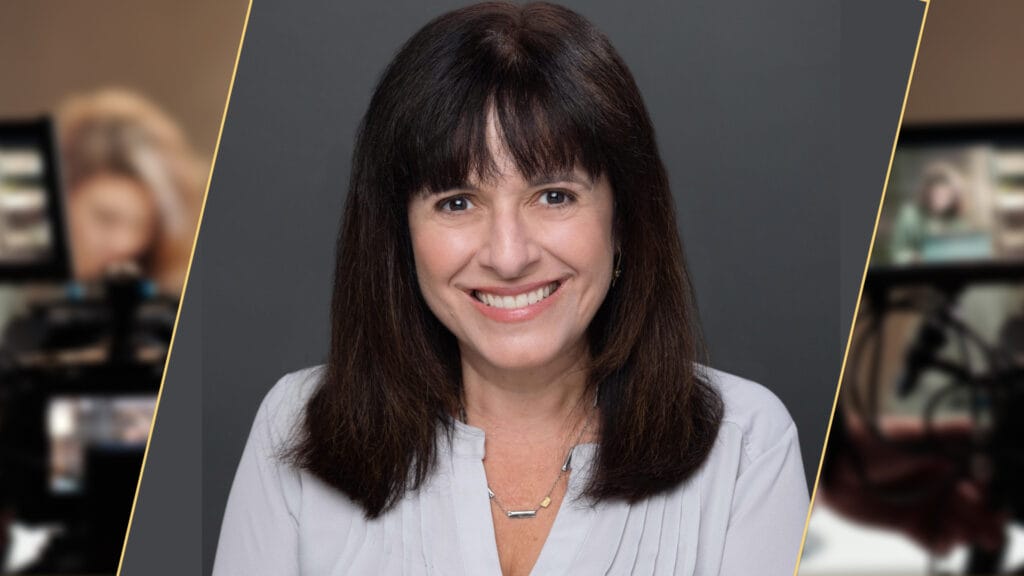
In a candid and thoughtful conversation, Sharon Lieblein—a seasoned Casting Director in the entertainment world—sat down to reflect on the industry’s evolution, the impact of technology, and what actors should keep in mind as they step into 2025 and beyond. Whether you’re a seasoned professional or just starting out, Lieblein offers guidance on staying authentic, sharpening your craft, and making bold decisions in an ever-shifting landscape.
The Tech Shift: How Technology Has Impacted Acting
“There’s a real clarity now about self-taping,” Sharon shares early in the interview, emphasizing how drastically technology has shifted the audition process. “I was surprised when I was watching an interview I gave a couple of years ago on self-taping, that I found 99.9% of what I said is still accurate today regarding notes that I would give to actors… There are a couple of things I wouldn’t have used as examples in today’s interview, but other than those, the answers stick.”
She continues, “Actors now feel like they are editors, lighting designers, and camera operators. They might still feel that the expectation is that you not only perform but also deliver high-quality tapes that feel professional. We’re not looking for anyone to spend lots of money to produce “professional-quality” auditions, we’re looking for a strong audition.”
But they do expect the takes to be professional regarding minimal background noise, a solid background, and lighting where we can actually see the actor. While that might feel daunting, she reassures us that it’s also empowering. “You can now submit for projects anywhere. The gatekeeping has lessened. You get to submit your best takes. Talent can shine without being in the room.”
Her advice is clear: “Invest in a ring light. Get a solid mic. Make your self-tapes feel like a showcase of your talent—not a chore.”

Redefining Accessibility and Agency
Sharon’s insight reflects a broader shift in the entertainment industry—one where technology is democratizing opportunity. In the past, landing an audition often meant being physically present in Los Angeles or New York, depending on where the production was happening. Today, platforms like theWorkbook allow actors to submit for major roles from anywhere in the world.
This decentralization of access means geography no longer defines your chances—it’s the quality of your performance and how well you present it technically. The rise of Zoom callbacks, virtual chemistry reads, and even entire productions cast without in-person meetings has redefined the norms.
What Sharon pinpoints—perhaps better than most—is that this shift, while challenging, is deeply liberating. Actors can now take ownership of their careers like never before. They can audition more, practice more, and even direct themselves in ways that used to be out of reach. For anyone just entering the business, understanding the technical side of auditioning is no longer optional—it’s essential.
And in Sharon’s view, it’s not a burden. It’s a superpower. “You don’t just get one chance for the pre-read, you get to put your best foot forward – even if you’re submitting 100th take. Only you know that”
The Excitement of 2025 and Beyond
Even as technology transforms the business of acting, Sharon insists one thing hasn’t changed—craft matters.
“Acting is still acting,” she says with clarity and conviction. “You or a friend might be running the camera and turning on the ring light, but you still need to know how to listen, how to connect, and how to tell the truth.”
At a time when many actors are fixated on the technical side of self-tapes and building a social media following, Sharon reminds us that the essence of acting remains timeless. “People can tell when you’re faking it. They’re craving something real. The work always comes back to truth.”
When asked how actors can actively improve, her advice is refreshingly grounded and holistic: “Take classes. Read scripts and books and industry trade magazines.. Watch great performances with a critical eye. Don’t just watch for entertainment—watch to study. What are they doing? How are they breathing? Where are the still moments?”
But perhaps most important of all, she adds, is community: “Find collaborators who push you. You don’t grow in a vacuum. You have to surround yourself with people who challenge your comfort zone in the best way.”
She also offers a practice that many overlook—reflection: “After an audition, ask yourself: What did I learn? What felt real? What didn’t land? That’s how you turn every opportunity—win or lose—into a learning and growth opportunity .”
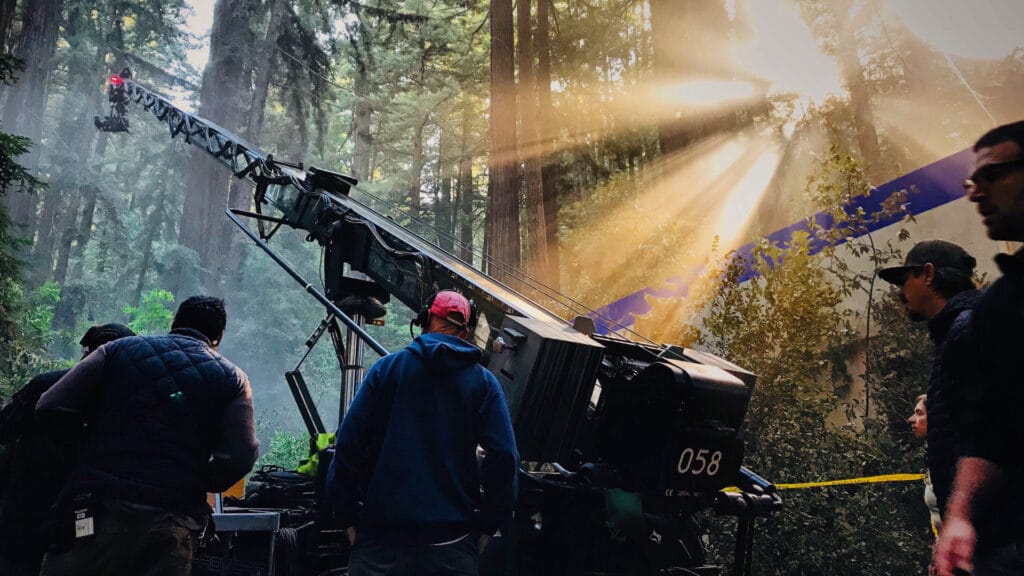
The Quiet Work That Pays Off
While headlines focus on overnight fame and social media virality, Sharon’s advice roots actors in the long game—the slow, deliberate sharpening of their artistic instincts.
Acting isn’t just a performance art—it’s an observational one. The best actors are lifelong students of human behavior. They read scripts not just for dialogue, but for subtext. They take classes not just for technique, but to stretch emotional muscles. They study performances the way athletes watch game tape.
What Sharon touches on—especially in her call to reflect after auditions—is a technique used in top-tier acting programs: self-diagnosis. Being able to assess your own work with honesty and curiosity is one of the most valuable skills an actor can develop.
Her reminder that you “cannot grow in a vacuum” is just as vital. In an age of self-tapes and solo auditions, it’s easy to become isolated. But acting, at its core, is about connection.
Growth happens in rehearsal rooms, in scene study groups, and in conversations with other artists who see something in you that you may not yet see in yourself.
In short, Sharon’s guidance is not just about becoming a better actor—it’s about becoming a more engaged, thoughtful human being, which, in turn, makes you a more compelling performer.
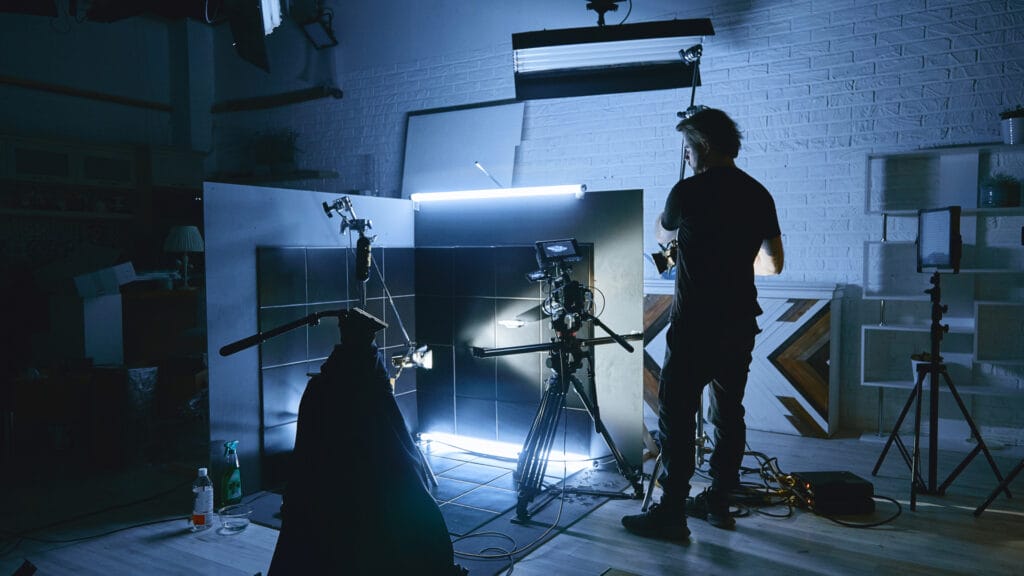
A Golden Era for Self-Made Creators
Sharon’s perspective hits on a critical truth—2025 is shaping up to be one of the most exciting times to be an actor, not in spite of the industry’s changes, but because of them.
Thanks to streaming platforms like Netflix, Hulu, Amazon, and the explosion of short-form content on TikTok, YouTube, and Instagram Reels, the demand for content—and the people who create it—has skyrocketed. And with that, casting is no longer limited to who lives in Los Angeles or who has the right “look” for network TV.
Casting directors and showrunners are now scrolling social media, watching indie films, and scouring the internet for talent that stands out—not just for how they look, but for who they are and what they bring that’s different.
The barrier to entry has never been lower. The ability to shoot a short film on your phone, build a loyal following, or crowdsource funding for a web series has never been more accessible. More than ever, actors are not just performers—they’re content creators, producers, and entrepreneurs, and that’s a good thing.
What Sharon urges young artists to do—“start something, put yourself out there”—isn’t just motivational fluff.
It’s strategic. It’s a way to take control of your own narrative, your own brand, and your own future. And the industry is watching.
In short, 2025 isn’t just full of possibility—it’s wide open for those ready to claim it.
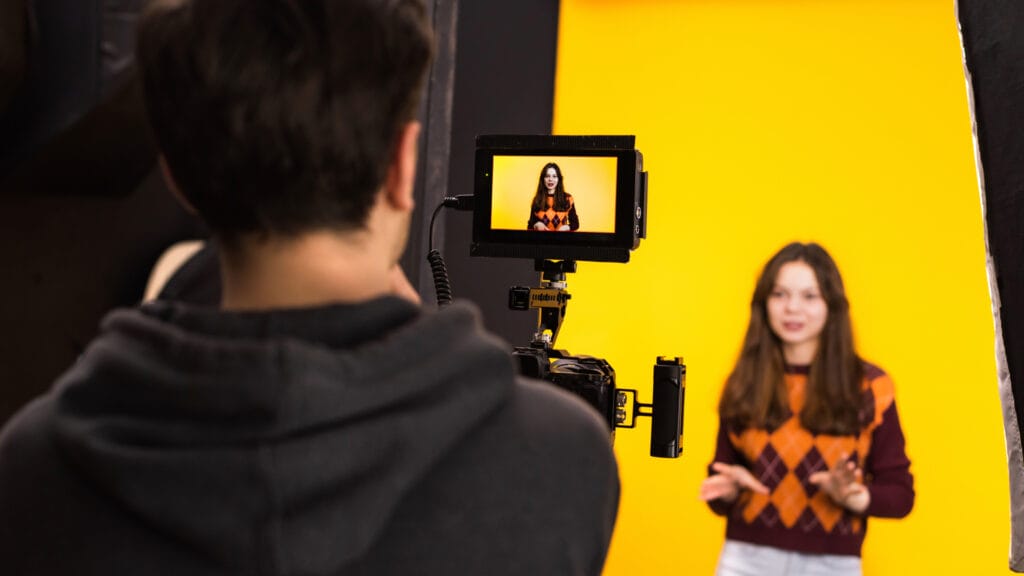
“LA, NY, and Key Regional Production Centers: The Geography of Opportunity”
While technology now enables actors to submit self-tapes from anywhere and attend virtual callbacks, Sharon remains adamant that location still plays a critical role in an actor’s growth and exposure.
“There’s just something about being in the energy of these cities,” she reflects. “You’re surrounded by working professionals. You hear what’s being cast. You’re in the pulse.”
She breaks it down further: “In LA, New York and other hot production centers like Atlanta and Vancouver, you’re near casting offices. You’re meeting filmmakers at coffee shops. The whole machine is right there. And in New York specifically—it’s the theater, the artistry, the training, the grind. You walk out your door, and you’re hit with story, culture, and community. These cities force you to level up.” When you’re surrounded by artists working at a high level, your bar naturally rises.
But Sharon also tempers the allure with a dose of realism. “They humble you, and they also inspire you. That’s the balance. These cities don’t promise anything. They won’t hand you success. And it’s not inexpensive.”
Her advice is measured: “Come when you’re ready to hustle. Have a plan. Don’t expect the city to hand it to you. It’ll give you opportunities, yes—but only if you show up ready to meet them.”
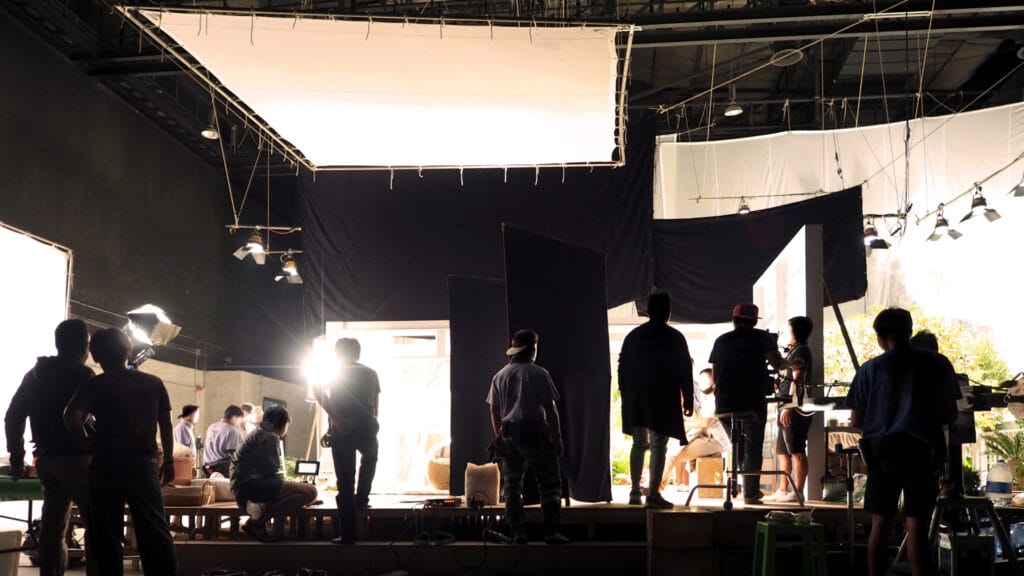
Proximity Still Breeds Opportunity
In an increasingly remote world, Sharon’s perspective reinforces a key industry truth: being in the room—or in the city—still matters.
There are also logistical perks. Being local to a casting director’s office (if they have one) can mean same-day auditions.
It can mean last-minute bookings that would be impossible if you lived out of state. And yes, while many auditions start with a self-tape, when producers still want to meet you in person—that often happens quickly.
Living in these cities also means daily immersion. You overhear casting conversations at brunch. You meet collaborators at industry mixers. You find scene partners on the subway or in acting class. You’re not just auditioning—you’re absorbing the industry culture in real-time.
Sharon’s warning not to move prematurely is wise. These cities are expensive, fast-paced, and emotionally demanding. But if you arrive prepared—with training, savings, strategy, stamina and hopefully representation already secured—they can become launching pads, not just destinations.
Because while success can technically start from anywhere, momentum builds where the action is.
For the Parents: Nurturing Young Talent Without Pressure
In one of the most tender and grounded moments of the conversation, Sharon turns her attention to a group often overlooked in industry conversations—the parents of young actors.
Her advice is both compassionate and clear-eyed, drawn from years of experience working with families navigating the unpredictable path of show business.
“First,” she says gently, “make sure it’s the kid’s dream—not yours. Support them, but don’t force them.”
It’s a sentiment that echoes the concerns of countless industry veterans: when the drive to perform comes from the parent rather than the child, the results are often damaging. Sharon emphasizes that acting, especially for kids, must be about joy—not pressure to perform.
“Don’t rob them of being kids,” she continues. “Acting should be fun. It should be creative and joyful. Let them explore it like they would any other hobby. When it becomes a job too early, that’s when burnout—and even resentment—can creep in.”
That said, Sharon recognizes that some children are deeply passionate about acting and deserve guidance and support:
“If a child is serious, give them structure. Get them into a class with other kids. Let them learn discipline and resilience in a safe environment. But also—protect their sense of self. Their identity can’t just be ‘the actor.’ They need space to be a whole person.”
Her closing advice to parents is perhaps the most important of all: “Stay involved, but don’t be controlling. Know who’s around your child. Know what they’re being asked to do. You are their first line of defense and their biggest advocate.”
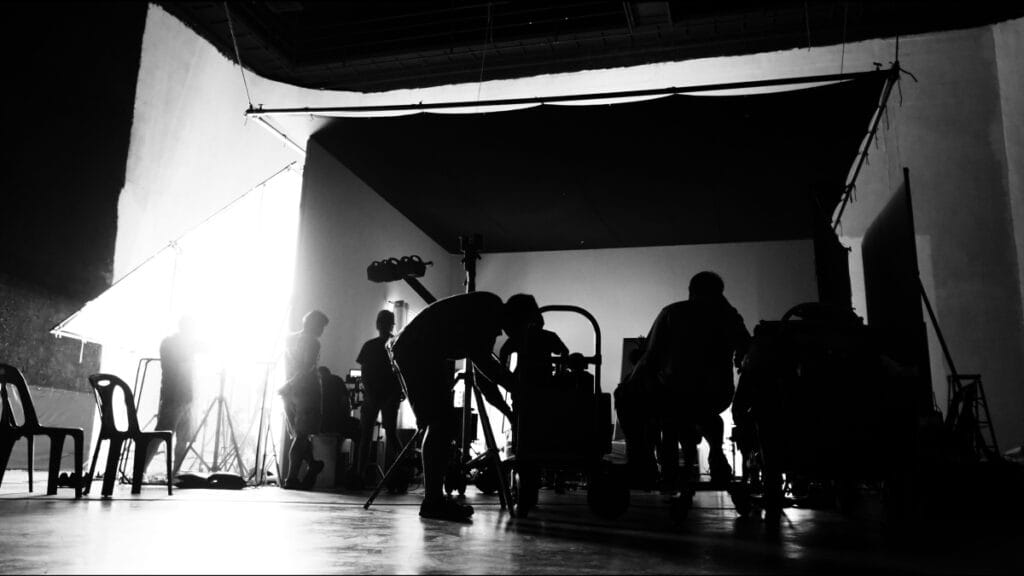
Balancing Passion, Protection, and Play
Sharon’s advice underscores what many child psychologists, coaches, and veteran actors emphasize: childhood is not a training ground for stardom—it’s a foundation for life.
While the entertainment industry can offer incredible experiences and even life-changing opportunities for children, it’s also an adult business that can move fast and carry heavy expectations. Without careful oversight and emotional safeguards, young actors can lose touch with their inner voice, their playfulness, and even their sense of autonomy.
Sharon’s call for “structure without pressure” is key. Acting classes designed specifically for young people not only help build craft, but also social-emotional skills—confidence, empathy, collaboration, and resilience. Being in a class with peers helps them understand that success is not about being better than others, but about growth over time.
Her point about parents staying involved—not controlling—is equally crucial. Parents who are present but respectful of boundaries help their children feel secure and supported without stifling their independence. They ask questions. They advocate. And they say no when needed.
Ultimately, Sharon’s message to parents is rooted in a powerful truth: your job isn’t to mold a star—it’s to protect a child. And if, along the way, that child becomes a successful actor, it will be because they were nurtured, not pushed.
All parents with children working in the industry should know about https://www.lookingaheadprogram.org/. This is a program that Sharon has helped build over the last 20 years. It’s a community for all professional young performers which offers events, education & mental health support for young talent. It’s a division of the Entertainment Community Fund and supported by SAG-AFTRA among others. The program is free of charge for families with children working in the entertainment industry.
Closing Thoughts: Own Your Journey
Sharon’s final note is one of encouragement and empowerment.
“There’s no one path in this industry. Everyone’s timeline looks different. Focus on the work, keep learning, stay open, know who you really are—and remember, you’re enough.”
For anyone dreaming of a career in the arts, this message hits home. As the industry shifts and evolves, Sharon’s wisdom reminds us that at the heart of it all is a simple truth: “People want to see you. The real you. So show up fully.”


